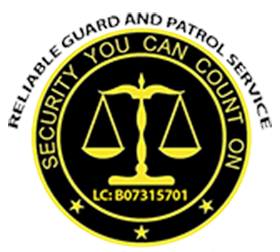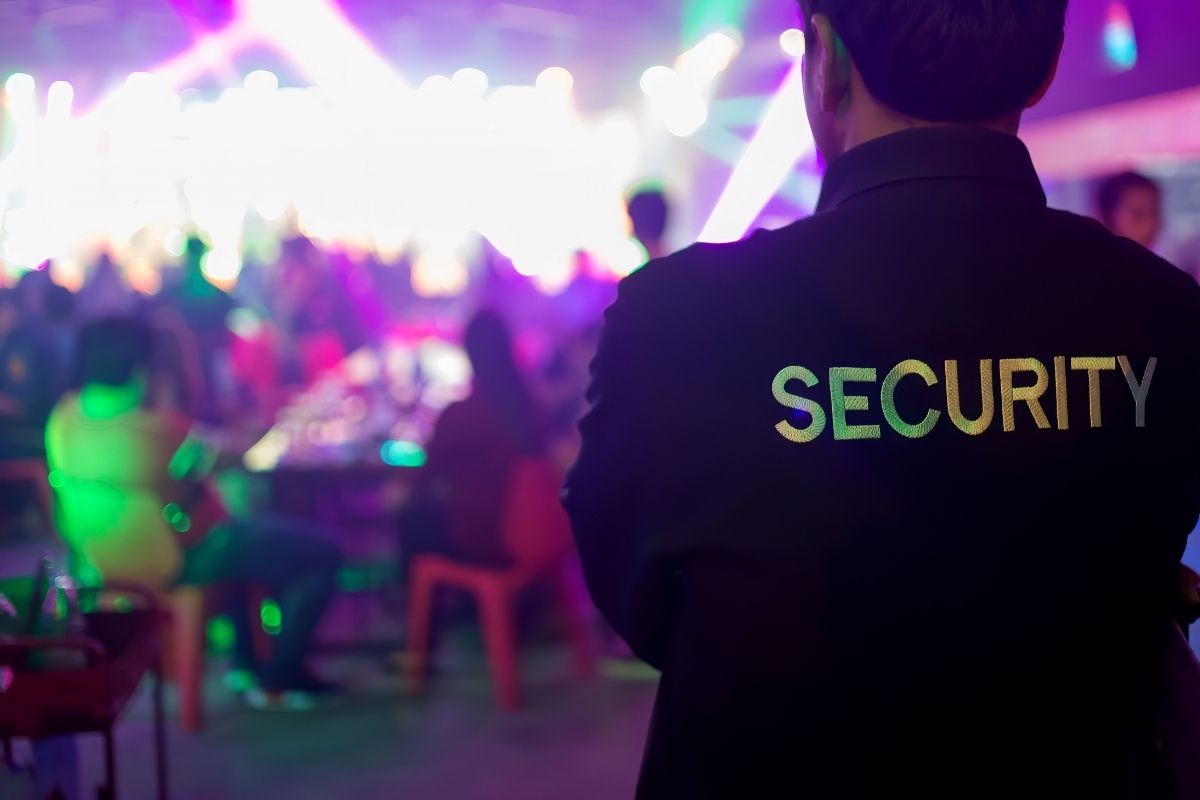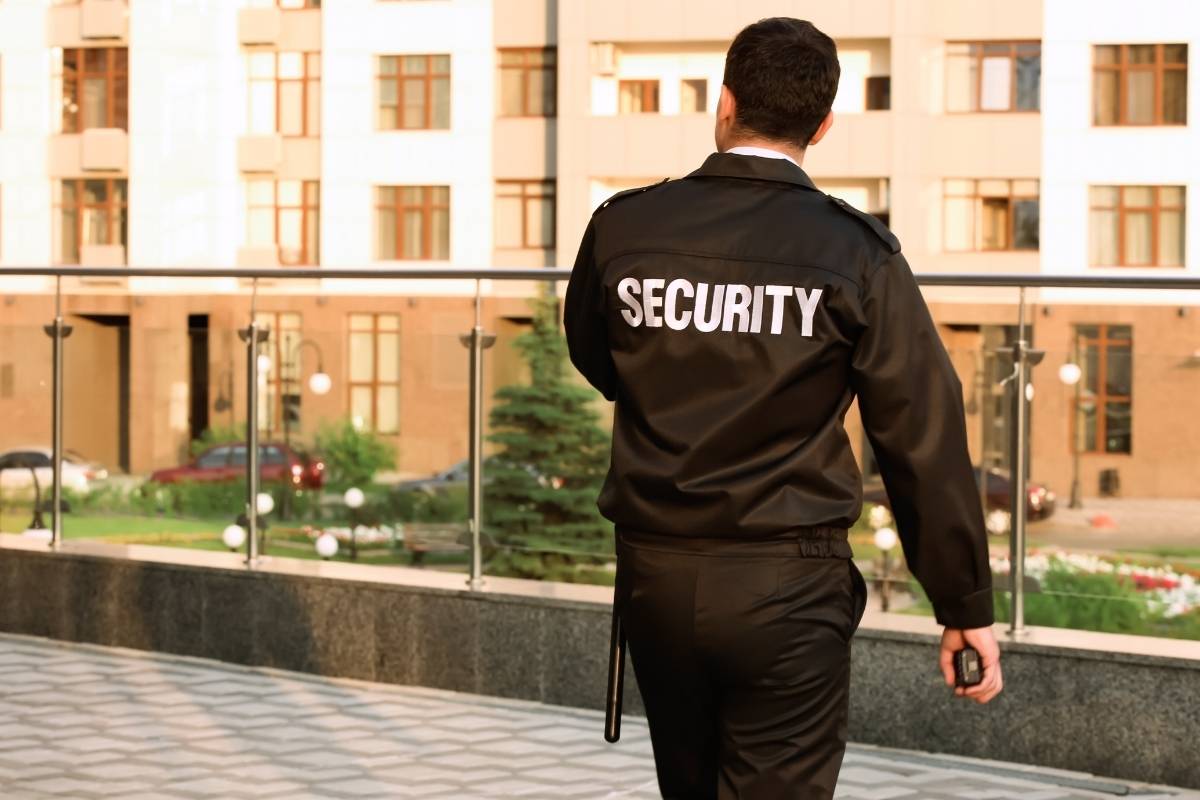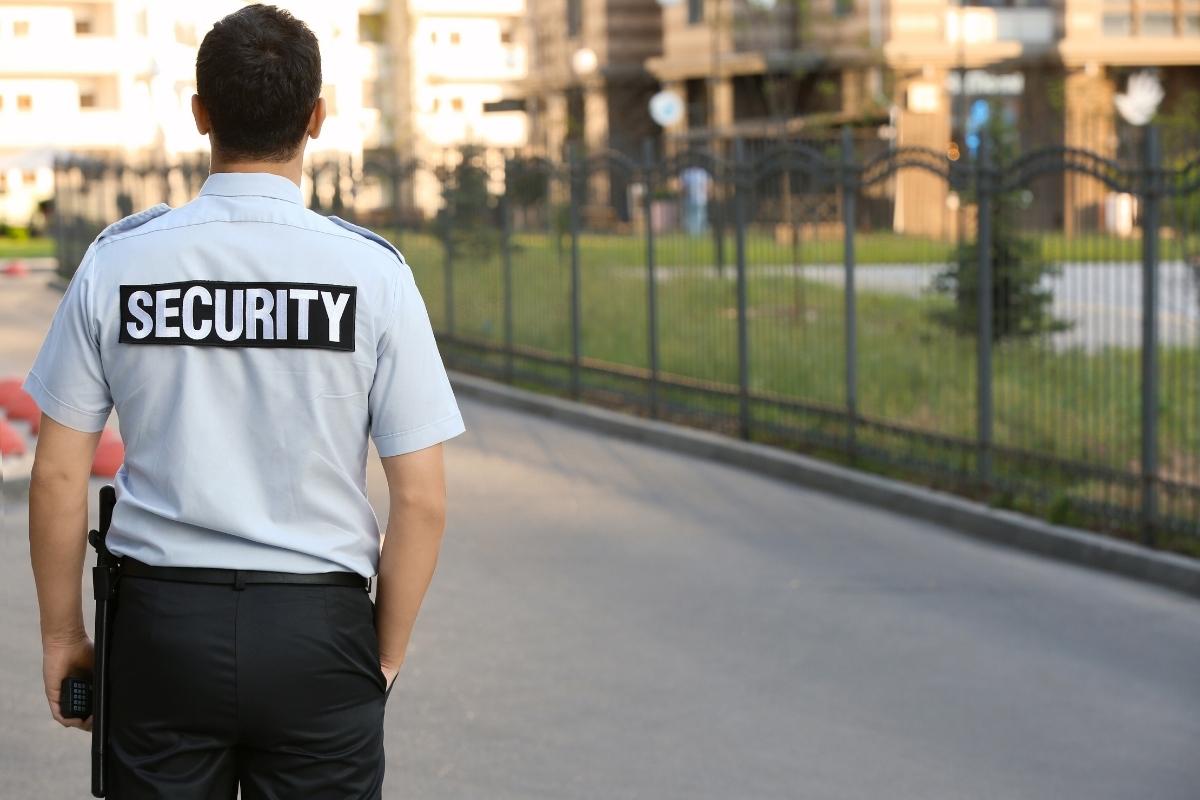
- Tue, Jul 2025
- |
- Reliable Guard and Patrol Service Inc.
Security guards perform five essential functions that form the backbone of professional security operations: safeguarding personnel and property, controlling facility access, responding to emergencies, conducting regular patrols, and documenting incidents. These core responsibilities ensure comprehensive protection for businesses, employees, and visitors while maintaining a secure operational environment.
Professional security personnel serve as the first line of defense against security threats, combining vigilance, training, and strategic protocols to protect valuable assets and maintain safety standards. Understanding these fundamental duties helps organizations make informed decisions when selecting security services and ensures proper implementation of protective measures through professional security companies.
Modern security challenges require skilled professionals who can effectively manage multiple responsibilities simultaneously, from monitoring surveillance systems to coordinating emergency responses. This comprehensive guide explores each critical function, explains why professional security services are essential, and provides practical guidance for recruiting qualified security providers like Reliable Guard and Patrol Service Inc.

Top 5 Key Duties and Responsibilities of a Professional Security Guard
Professional security guard responsibilities span numerous essential tasks designed to ensure safety and protection within their designated areas. Beyond securing properties and facilities, security personnel duties involve utilizing cutting-edge technology to identify and prevent potential threats before they develop into serious incidents. Anticipating and mitigating risks has become a fundamental aspect of modern security responsibilities, as outlined by the Security Industry Association. Here are the top 5 essential duties and responsibilities that professional security guards must fulfill, which you should understand before bringing them onto your team.
The role of a security guard encompasses comprehensive protection services that require vigilance, professionalism, and strategic thinking. These core responsibilities form the foundation of effective security operations and demonstrate why qualified security professionals are invaluable assets for any organization seeking to maintain a secure environment.
1. Safeguarding Personnel, Property, and On-Site Assets
The fundamental duty of a security guard centers on protecting the safety and security of all individuals and assets within the facility. These professionals receive specialized training to recognize potential security threats and implement preventative strategies to address them. Security personnel oversee monitoring equipment, perform routine site inspections, and uphold established security procedures to reduce risks of unauthorized entry or criminal behavior.
Whether providing armed security guard services for high-risk environments or unarmed security services for general protection, guards must maintain constant vigilance to ensure comprehensive asset protection.
2. Overseeing and Regulating Facility Access
Managing entry to the facility represents a critical function of security guard operations. They authenticate the credentials of persons seeking entry, confirm appropriate permissions, and document visitor information systematically. Through rigorous access management, security guards block unauthorized personnel from accessing secure zones, thereby safeguarding confidential data and valuable resources.
Professional security officers implement access control protocols that comply with industry standards established by organizations like the National Association of Security Companies.
3. Addressing Emergency Situations and Critical Incidents
Security personnel receive comprehensive training to handle emergency situations and incidents with speed and precision. They evaluate circumstances, deliver immediate support to affected individuals, and liaise with emergency response teams when necessary. From medical crises to fire emergencies or other unexpected occurrences, security guards serve as the primary response force, protecting all personnel within the facility.
Emergency response protocols must align with OSHA safety standards and Department of Labor guidelines to ensure proper incident management and worker protection.
4. Performing Routine Patrols and Security Assessments
Security guards execute systematic patrols and comprehensive facility inspections to uphold a protected environment. These activities enable them to detect security weaknesses or questionable behavior. Through proactive monitoring and constant alertness, security personnel can stop potential dangers from developing into significant security compromises.
Specialized patrol services are essential for various industries, including construction site security, warehouse security, and shopping center security.
5. Creating Comprehensive and Precise Incident Documentation
A vital duty of security guards involves producing thorough and accurate incident documentation. They record all security-related events, such as theft occurrences, accidents, or unauthorized conduct. This documentation functions as critical evidence for subsequent investigations or legal proceedings, enabling organizations to recognize trends and enhance security protocols.
Professional documentation standards are established by the Private Security Professional Association and must comply with state regulations such as those enforced by the Texas Department of Public Safety.
What Makes Security Guard Services Essential?
Employing professional security personnel stands as a critical necessity for enterprises and institutions across every scale of operation. These protective services deliver a conspicuous barrier against prospective wrongdoers, safeguarding staff members, facilities, and valuable resources. Through the deployment of skilled security officers on location, companies can substantially reduce threats of burglary, property damage, and illicit entry.
Furthermore, security personnel receive comprehensive training to manage crisis situations and deliver swift, competent responses to various incidents. Their physical presence fosters confidence and peace of mind among workers, clients, and guests, strengthening the company’s professional standing. Beyond basic protection, security officers excel at crowd control and order maintenance throughout special events or high-traffic periods, guaranteeing seamless operational continuity.
Event security services and hotel security services require specialized expertise to handle unique challenges and ensure guest safety.

How to Recruit Professional Security Guard Services?
Selecting security guard services requires careful evaluation of key elements to guarantee dependability and performance. Follow these guidelines when selecting a security provider:
Seek licensed and accredited firms with established credentials: This guarantees that security personnel receive proper training, possess relevant experience, and adhere to professional regulations. Verify credentials through the Better Business Bureau and local chamber of commerce organizations like the Houston West Chamber of Commerce.
Evaluate your unique security requirements and select specialized providers: Finding companies with sector-specific knowledge or those experienced in addressing comparable security concerns is crucial. Reviewing their qualifications, standing, and customer feedback assists in making a well-informed choice. Consider security guard services in Houston that specialize in your industry needs. Learn more about us and our comprehensive approach to security solutions.
Articulate your expectations and specifications clearly: Address service scope, staffing schedules, communication procedures, and particular security measures. Setting up transparent communication channels promotes seamless and productive partnership. Industry publications like Security Magazine and Security Today provide valuable insights into best practices and emerging trends.
How Do Security Teams Collaborate to Protect Your Safety?
Security personnel and officers work in tandem to deliver complete protection services. Personnel manage day-to-day operations such as surveillance, area monitoring, and incident response, while officers oversee and direct these functions. An officer typically holds a more senior position and manages complex operational duties. Officers deliver strategic guidance, establish procedures, and execute protective protocols. Working together, they create secure environments, with personnel concentrating on frontline responsibilities and officers managing operations, performing threat evaluations, and guaranteeing security measures are properly implemented.
The security manager serves as the connection point between personnel and officers, delivering supervision, tracking effectiveness, organizing activities, and maintaining compliance with established procedures and guidelines for optimal security operations. Through operating as a cohesive unit with effective communication, clearly defined responsibilities, and continuous development, security teams successfully safeguard individuals and assets while efficiently addressing protective challenges.
Regional security providers, such as security officers in Sugar Land, understand local regulations and community-specific security needs. Additionally, Pearland security officers provide specialized coverage for the greater Houston metropolitan area.
Conclusion
Security personnel play a vital role in maintaining the protection and safety of facilities, creating a secure environment for staff, clients, and guests. Their duties and functions, encompassing access control oversight, emergency response management, conducting security rounds, and preparing incident documentation, form an integral part of an organization’s comprehensive security framework.
Through emphasizing professional security solutions and committing to appropriate resources, businesses can establish a protected environment that secures their valuable assets, shields their workforce, and enhances their professional standing. Don’t hesitate to request a complimentary quote or contact us today to explore your security requirements.
FAQs
What qualifications should I look for when hiring a security guard?
When hiring security personnel, prioritize candidates with proper licensing and certification from recognized training programs. Look for individuals with relevant experience in security operations, emergency response training, and excellent communication skills. Additionally, ensure they have undergone background checks and possess the physical capability to perform patrol duties and handle emergency situations effectively.
How do security guards handle multiple responsibilities simultaneously?
Professional security guards are trained to prioritize tasks based on immediate threat levels and operational requirements. They utilize systematic approaches such as scheduled patrol routes, monitoring technology alerts, and maintaining constant communication with their team. Through proper training and experience, security personnel can efficiently manage access control, surveillance monitoring, and incident response while maintaining overall situational awareness.
What is the difference between armed and unarmed security guards?
Armed security guards carry weapons and receive specialized training for high-risk environments, typically employed in locations with valuable assets or elevated threat levels. Unarmed security personnel focus on deterrence, observation, and reporting, relying on their training in conflict resolution and emergency procedures. The choice between armed and unarmed guards depends on your specific security needs, risk assessment, and local regulations.
How often should security guards conduct facility patrols?
Patrol frequency depends on the facility size, security risk level, and operational requirements. Generally, security guards perform routine patrols every 1-2 hours, with more frequent checks in high-risk areas or during overnight shifts. Some facilities require continuous monitoring with guards stationed at fixed posts, while others benefit from randomized patrol schedules to maintain unpredictability and maximum security coverage.
What should I expect in a security guard’s incident report?
A comprehensive incident report should include the date, time, and location of the event, detailed descriptions of what occurred, individuals involved, actions taken by the security guard, and any evidence collected. The report should also document witness information, emergency services contacted, and follow-up recommendations. Quality incident documentation serves as crucial evidence for investigations, insurance claims, and improving future security protocols.



